Oil and ink mix as Chevron reports the ‘news’ in Texas, New Mexico
In the fossil fuel-rich Permian Basin, a major producer runs a regional website that combines industry perspective with feel-good local stories.
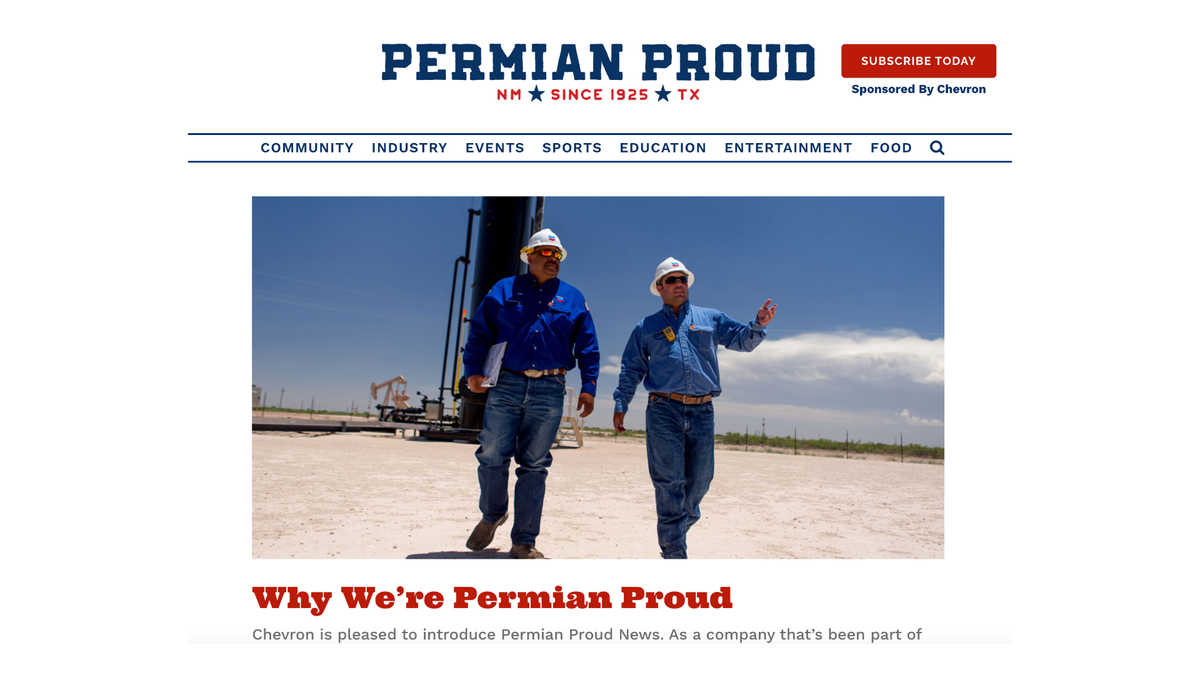
Published by the Louisiana Illuminator, Texas Climate News, Santa Fe New Mexican, Taos News
Across West Texas’ Permian Basin, the oil industry’s presence seeps into many facets of life. Businesses from hotels to veterinary clinics display oil pump jacks on their signs. An oil derrick is part of the logo for the city of Midland.
And there’s another way the industry influences local communities: Since 2022, one of the largest oil producers in the Permian Basin has run its own local news website. The Chevron-operated site, Permian Proud, provides local news coverage for a region with a dwindling number of local news outlets, while inserting articles with a positive spin about the company.
The news site doesn’t have staff reporters or editors like traditional news media, and instead is written by a San Francisco public relations firm and a Chevron public and government affairs adviser.
The Permian Basin covers a 250-mile by 300-mile swath of eastern New Mexico and West Texas. It is one of the most oil-rich areas in the world, producing more than 10 million barrels per day of oil and natural gas, the latter composed primarily of methane.
The founding of Permian Proud comes at a time when the oil and gas industry is under increasing fire for its dominant role in creating the climate crisis, and states and the federal government seek to replace fossil fuels with low- or no-emission sources of energy.
It is also part of a network of Chevron-owned news outlets amplifying the company’s viewpoint while publishing feel-good stories about local events and people. The same San Francisco public relations firm that provides content for Permian Proud runs the Richmond Standard news site in Richmond, California. It also operates an English-language website in Ecuador, where the energy giant has fought back decades of litigation.
Chevron created the site to highlight the activities “in a region that plays an important role in providing the energy that makes modern life possible,” Chevron spokesperson Ross Allen said in a written statement. Allen added that the site is a “community benefit” to the residents, businesses and employees in the region.
In a 2023 email interview, Greg Connell, an Odessa City Council member, said he wasn’t familiar with Permian Proud. Today, he is now familiar with the site — and unsurprised by Chevron's entrance into local news.
“Chevron showing interest in the communities and not just the oil, that is nothing new. Always a positive for the Permian Basin,” Connell said.
During his time living in the Permian Basin, he said he often sees Chevron and other oil businesses donate money for local community programs, a practice that he welcomed. After reviewing the site, Connell said Permian Proud seems to diversify the media in the region.
“As you know there are always two sides or perspectives to any story. This publication appears, simply, just the news, supporting the Permian Basin,” Connell said.
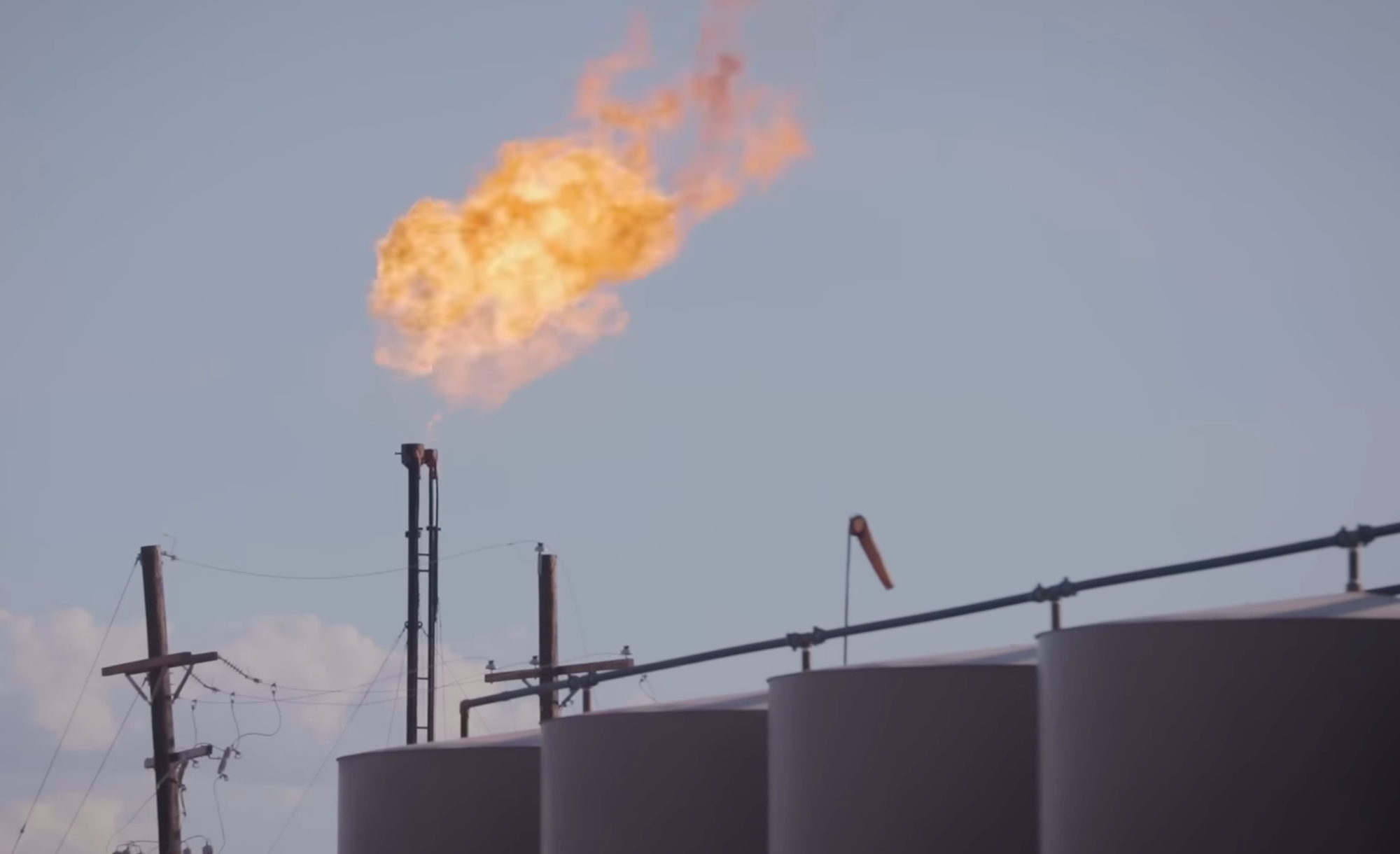
Countering the oil and gas narrative
Miguel Escoto, an environmental advocate from El Paso, is familiar with the narratives spun by the oil and gas industry in West Texas. Escoto previously ran his own platform, Mesquite Media, to counter the heavy oil and gas industry influence he sees in the Permian Basin.
Escoto said the purpose of Mesquite Media, which largely hosted podcasts, was to “amplify voices of resistance to fossil fuel corporate power” and to show how connected the people of the Permian Basin are — culturally, socially and economically — despite their differences.
Escoto now works with Oilfield Witness, a citizen journalism website and documentary producer that investigates fracking and air emissions in the Permian Basin.
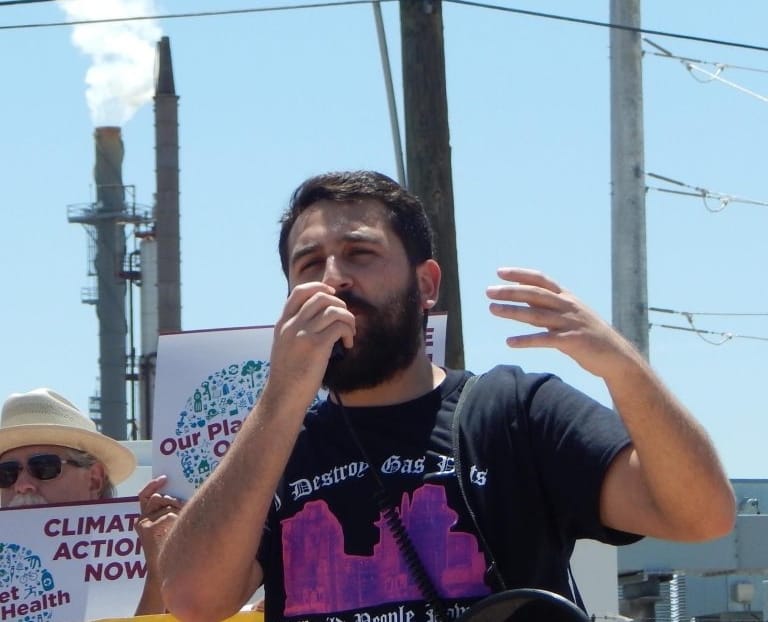
“Permian Proud is a blatant, naked attempt by industry to have their side of the story be told,” Escoto said.
At the same time, the website “is not that much different than how oil and gas is covered by local channels,” across West Texas, Escoto said.
He cited the example of an Odessa oil field worker and his wife who died in 2019 from a poisonous gas leak while inspecting a work site. Local news outlets covered the incident, but framed it as “an inevitable tragedy” like a car crash or lightning strike, rather than investigating “why we have to live in this situation to begin with,” Escoto said.
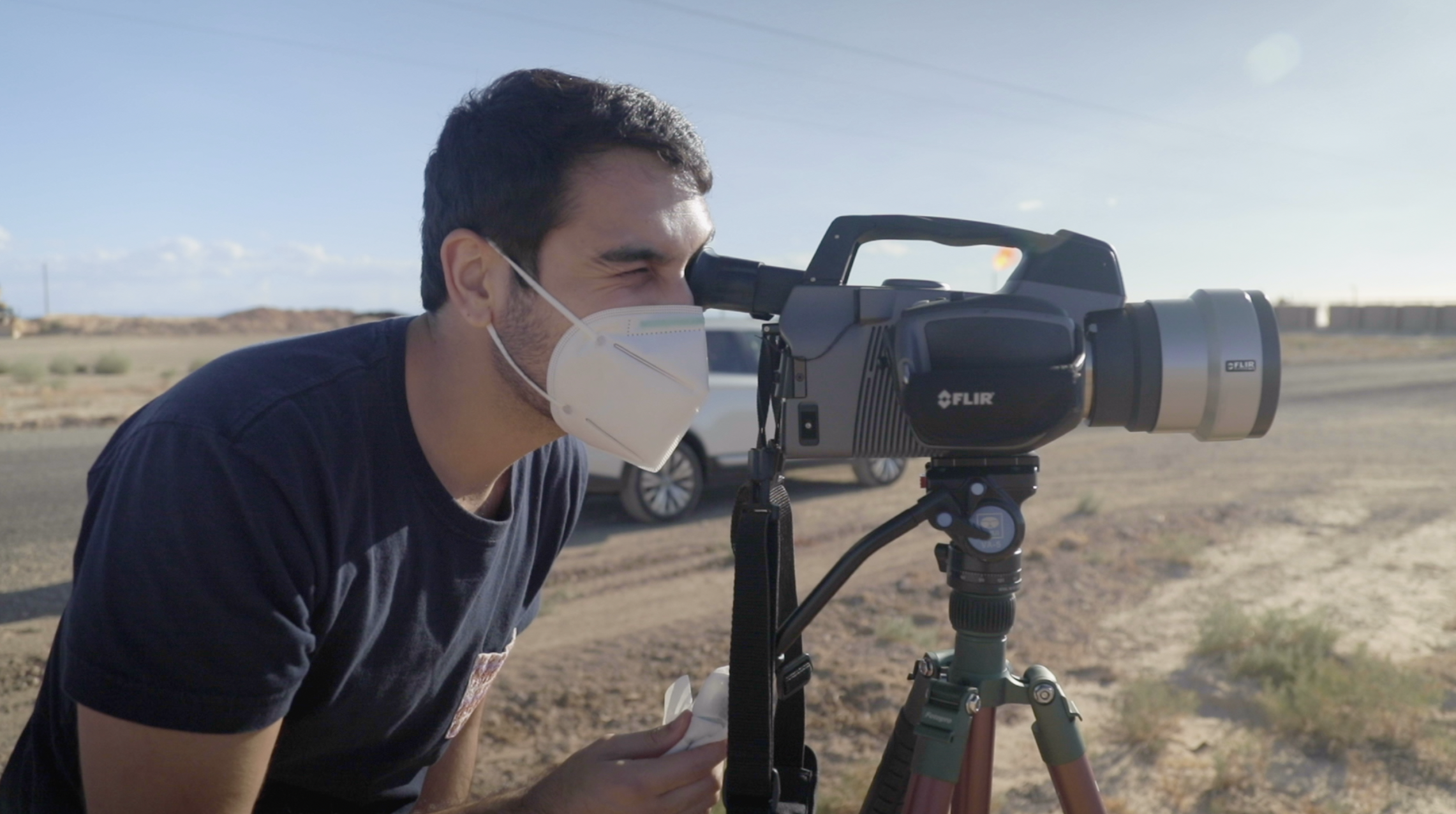
The oil field worker’s employer, Aghorn Operating Inc., and a company executive were later indicted by the U.S. Department of Justice.
“The attitude is often that it’s inevitable. It’s too big to move so why even try?” Escoto said. “A lot of people have given up on the idea that the Permian Basin can exist without the oil and gas industry.”
Local officials defend industry influence
Mayor Sam Cobb of Hobbs, New Mexico, is very open about his support for the oil and gas industry.
“I’m very glad that Chevron is part of our community,” Cobb said.
Cobb remembers the 1980s when oil and gas companies largely left the Permian Basin in pursuit of oil extraction abroad. Over the last decade, production in the region boomed due to fracking, which unlocks previously inaccessible fossil fuel deposits. Cobb said he welcomes the resurgence — and the dollars that those corporations put towards local communities.
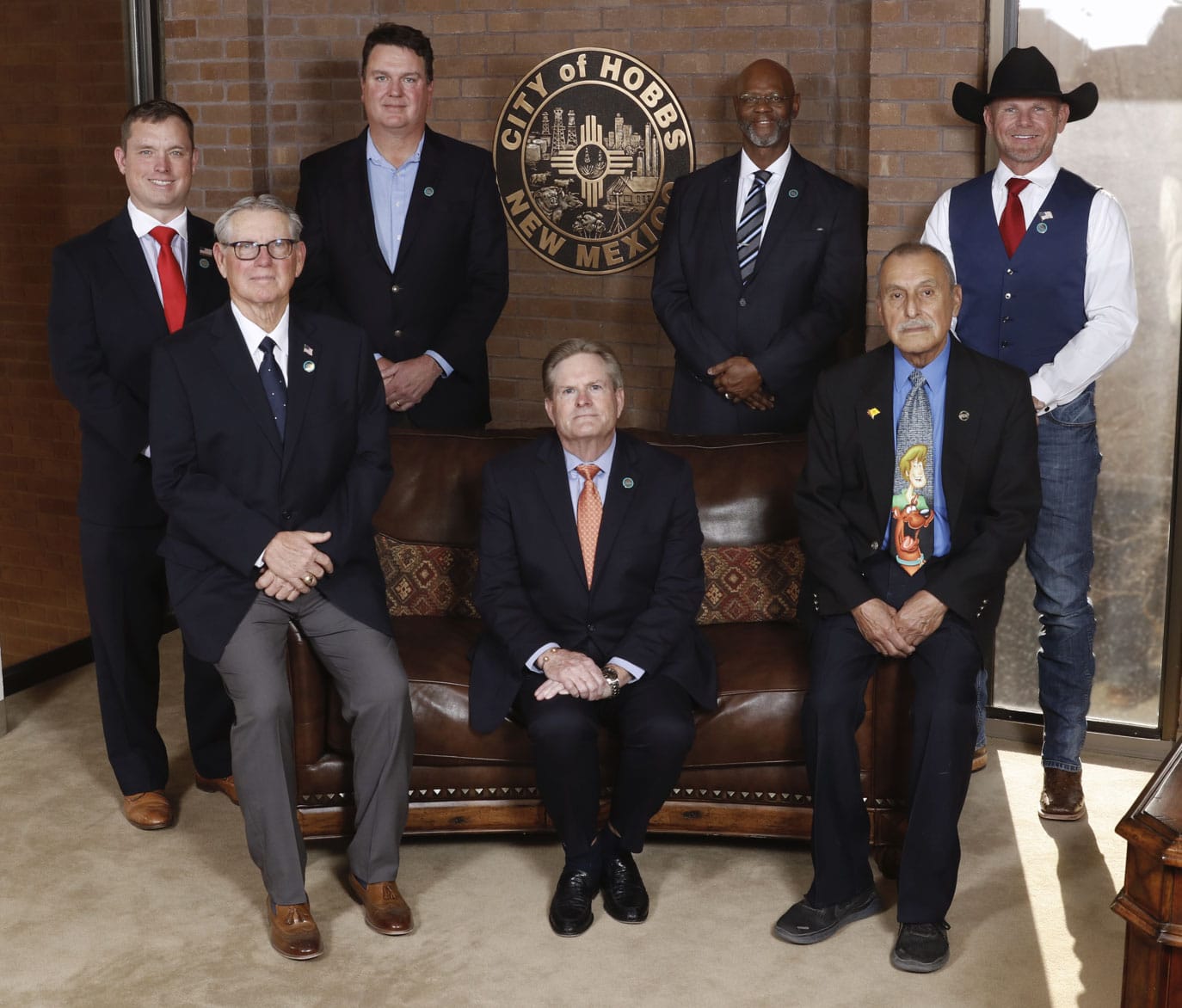
In recent years, Lea County, where Hobbs is located, has been regularly ranked among the highest producing oil counties in the nation. The oil industry and companies that provide services for the industry are the largest employers in his city, Cobb said.
He acknowledged that some of those dollars arrived amid larger statewide pushes for New Mexico to go green. Cobb said he prefers that these multinational oil companies have a community presence rather than come in only to extract.
“We encourage the investment and continue to be partners with them,” Cobb said.
On Permian Proud, Cobb said the site seems to promote “positive things” in the places where Chevron has business activities.
“This website is new to me, but their activity in the community is not,” Cobb said.
‘We’re impartial … they’re obviously not’
Permian Proud headlines include celebrating the lunches that Chevron sponsored for a Martin Luther King Day event — which Cobb helped deliver alongside Chevron employees. The Hobbs News-Sun also regularly covers the oil giant’s donations to local schools and nonprofits.
Blake Ovard, editor of the Hobbs News-Sun, said he isn’t worried about potential competition with Permian Proud’s entrance into the local news market.
“I look at it as being more of a way of getting information that they wouldn’t have normally given out,” Ovard said. “As journalists we’re impartial, and they’re obviously not.”
Oil and gas news is among the top coverage in the News-Sun. Ovard said the newspaper does not shy away from the negatives — or the benefits — of the industry in the region.
That includes coverage that ranges from environmental impacts to the $10 million that the Permian Strategic Partnership donated to found a new vocational high school in Hobbs, Ovard said. Chevron is one of 31 members of the partnership, which funds philanthropic projects across the Permian Basin. The oil and gas industry also advertises in the News-Sun.
“I never operate my newsroom out of fear of advertising doing anything,” Ovard said. “Our whole thing is that we’re a news organization that will tell the real story. We cover just about anything that touches or has benefited from oil and gas.”
Permian Proud planted in a news desert
Many of the counties within the Permian Basin are considered “news deserts,” or areas with limited access to local, credible news sources.
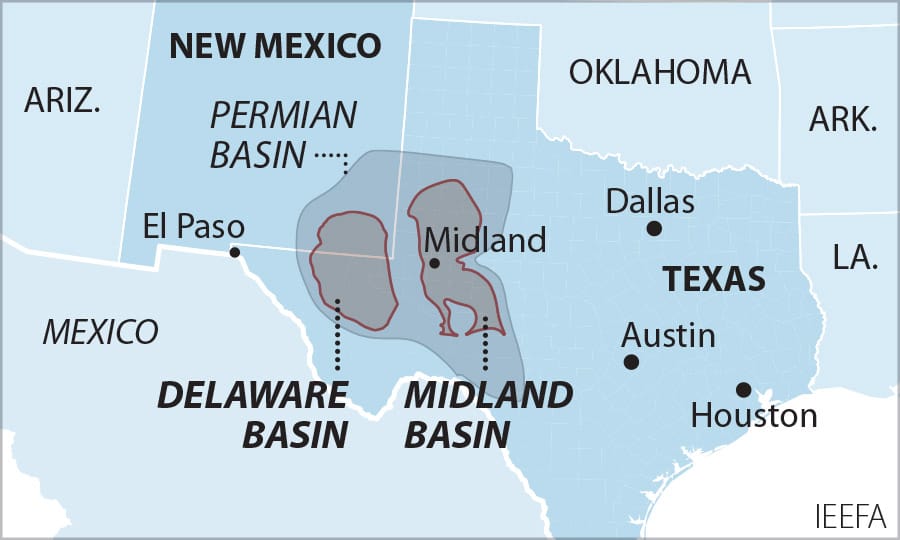
Of the 61 counties considered part of the Permian Basin region in Texas, 13 counties had no local newspapers, and the majority had only one newspaper, according to the news desert map maintained by the University of North Carolina. The map only denotes newspapers and does not include TV or radio coverage in these areas.
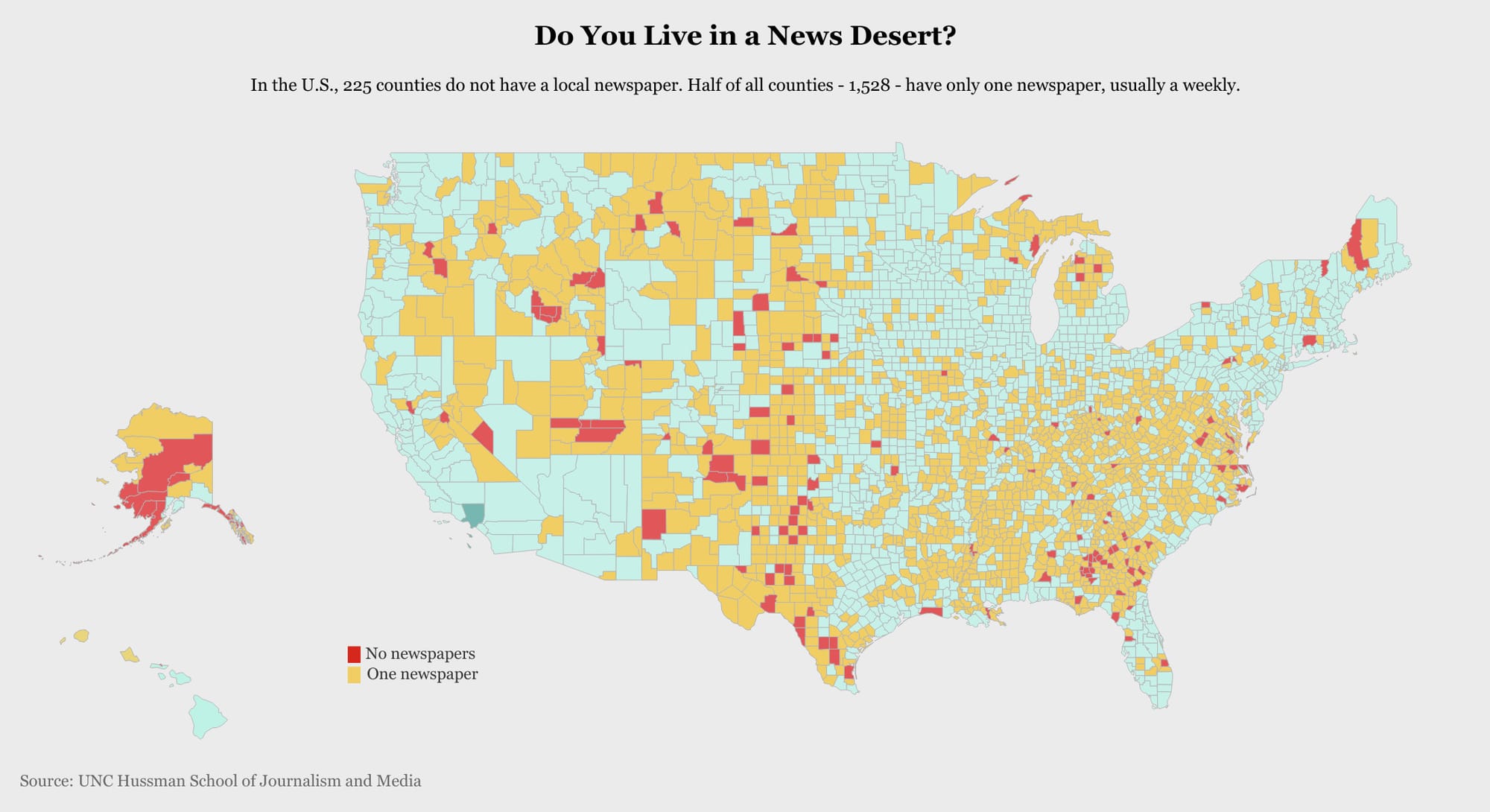
Among Texas’ larger media players — Dallas Morning News, Texas Monthly, Houston Chronicle, Texas Tribune — the coverage of the Permian Basin includes stories about climate change, air quality concerns, the environmental damage caused by abandoned oil wells and the complicated economic relationship between these communities and the oil industry.
A search of the Permian Proud’s two-year-old website shows just a smattering of stories about climate change or greenhouse gas emissions — despite the oil and gas industry’s leading role in causing the climate crisis. As of Aug. 12, there were two stories mentioning climate change; one is a recap of a Texas Tribune series about training oil and gas workers and the other quotes a Chevron official about new techniques for measuring methane emissions.
The site has plenty of articles boasting of the importance of the Permian Basin and Chevron, sprinkled in with coverage of events, sports and awards given to local residents.
One story reported on Chevron receiving the highest environmental rating in the Permian Basin. Another announced that Chevron plans to boost its production to meet U.S. energy needs.
And the site reported on a $145,000 company donation to help students in Carlsbad, New Mexico — to pursue careers in energy and natural resources.
Cobb, the mayor of Hobbs, acknowledged it’s rare to find any criticism of the region’s dominant industry in the local media — even outside Permian Proud.
“The oil and gas industry,” he said, “doesn’t get much negative coverage out here.”
Felicia Alvarez's initial reporting on this story came through the Investigative Reporting Program at the University of California-Berkeley.
Floodlight is a nonprofit newsroom that investigates the powerful interests stalling climate action.
